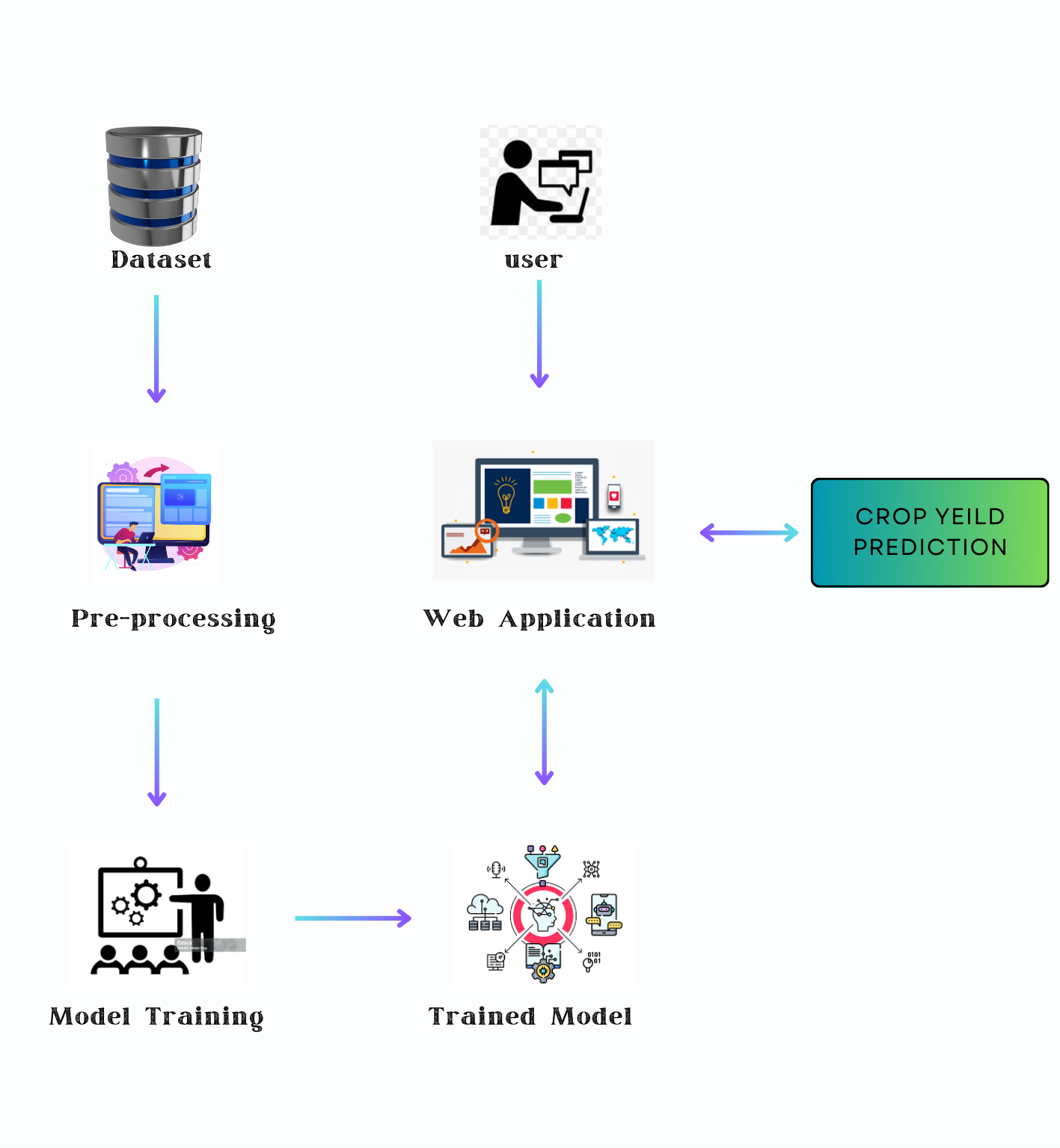Aim:
To develop a robust and accurate crop yield prediction system by integrating meteorological data, pesticide usage records, and crop yield statistics, leveraging advanced machine learning techniques to promote sustainable agricultural practices and enhance global food security.
Abstract:
Climate change and excessive pesticide use pose significant challenges to agricultural productivity and global food security. Accurate crop yield prediction is critical for addressing these issues and promoting sustainable agricultural practices. This study introduces a machine learning-based framework that integrates meteorological data, pesticide usage records, and crop yield statistics to forecast crop yields effectively.
The research focuses on data preprocessing, model development, and evaluation using machine learning techniques. By analyzing the relationships between environmental factors and crop yields, the study provides insights into optimal agricultural conditions. The findings emphasize the role of data-driven methods in improving resource management, supporting sustainable farming, and enhancing resilience to climate change. This work contributes to advancing predictive tools for agriculture and ensuring long-term food security
Existing system:
Existing crop yield prediction systems are typically based on traditional statistical methods or simpler machine learning algorithms such as linear regression, decision trees, or K-Nearest Neighbors. These systems often analyze limited factors, focusing on either meteorological data, pesticide usage, or historical crop yield data in isolation. Such approaches fail to fully integrate multiple influencing factors or to account for complex, non-linear relationships within the data. Additionally, many of these systems lack advanced techniques for optimizing model performance, such as hyper parameter tuning, which can help prevent overfitting and improve prediction accuracy.
As a result, these models often offer generalized predictions that may not be as accurate or adaptable to dynamic agricultural conditions. Furthermore, existing systems tend to focus primarily on yield estimation rather than incorporating broader sustainability considerations or promoting resource optimization, limiting their effectiveness in addressing the challenges posed by climate change and excessive pesticide use.
Problem Definition:
The agricultural sector is increasingly impacted by climate change and excessive pesticide use, affecting crop yields and food security. Accurate crop yield prediction is essential to address these challenges, but existing systems often fail to integrate crucial factors such as meteorological data, pesticide usage, and historical crop yield information. These systems typically rely on limited datasets and simplistic models that do not capture the complex relationships between these variables. As a result, they are unable to provide comprehensive insights needed for sustainable agricultural practices, resource optimization, and enhancing resilience to climate change. There is a need for a more holistic approach to improve crop yield prediction and support better decision-making.
Proposed System:
The proposed system aims to improve crop yield prediction by collecting and integrating data from meteorological sources, pesticide usage records, and historical crop yield information. This data will be preprocessed to ensure its quality and consistency. Subsequently, machine learning algorithms such as K-Neighbors Regressor, Random Forest Regressor, Decision Tree Regressor, and Bagging Regressor will be applied to model crop yield predictions. Hyperparameter tuning will be performed using GridSearchCV to optimize model performance. Finally, a web application will be developed using Flask, Python, HTML, CSS, Bootstrap, and JavaScript. The application will feature user login and registration interfaces along with a prediction interface, allowing users to easily interact with the system and obtain crop yield predictions based on the collected data.
Advantage:
- The system integrates multiple data sources meteorological data, pesticide usage, and historical crop yield information providing a holistic view of the factors influencing crop yields.
- By employing various machine learning algorithms and fine-tuning them using GridSearchCV, the system aims to provide reliable and accurate crop yield predictions, assisting in better decision-making for farmers and agricultural planners.
- The system promotes sustainable agricultural practices by helping farmers optimize pesticide usage and resources based on accurate predictions of crop performance.
- The web application provides an intuitive and easy-to-use interface for users, with login, registration, and prediction features, enabling farmers, researchers, and agricultural stakeholders to access predictions with minimal effort.





















Reviews
There are no reviews yet.